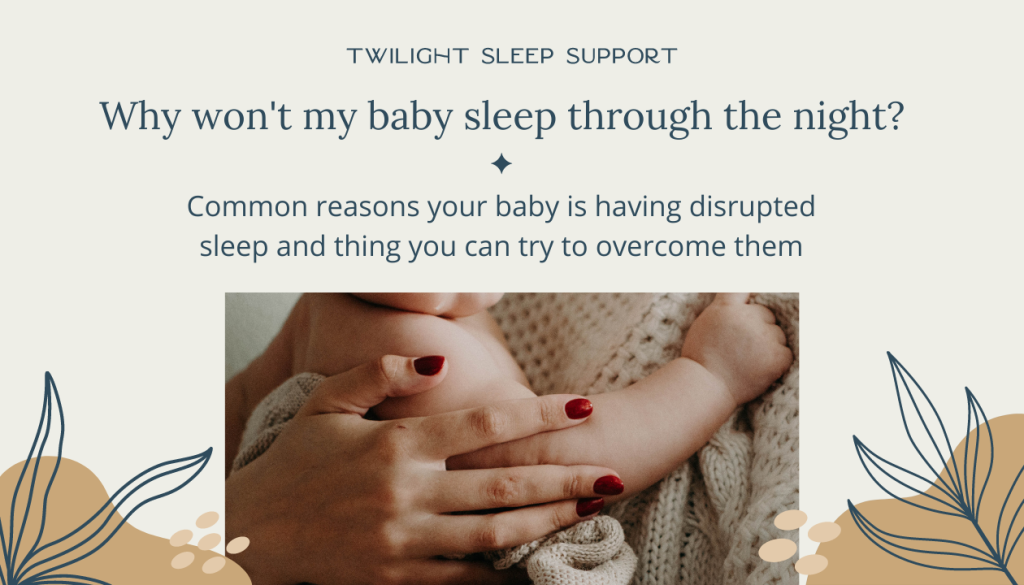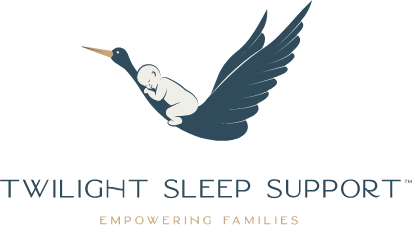
During the first few months of becoming a parent it’s safe to say your sleep patterns have significantly changed. Even once you have created a routine that helps your baby sleep through the night, baby sleep problems can still appear from time to time.
Regardless of whether you’re just starting to try and create a sleep routine or if your child has suddenly started to have disrupted sleep it can start to feel like a nightmare.
In some cases disrupted sleep can be caused by temporary issues such as teething. However, persistent sleep problems that make it difficult for you and your baby to get a full night’s sleep could be a sign that some updates to your current routine need to be made.
Depending on the age of your child the reasons behind disrupted sleep will vary, below are a list of common issues your child could be going through and tips on how these can be overcome.
If your baby is sleeping all through the day only to stay up through the night then you face the joys of a nocturnal baby. Whilst your child will grow out of this in time there are things you can try to help speed up the process. Limiting day time naps is a clear solution to the problem however you can also incorporate clear distinctions between day and night, try keeping the baby’s room dark when they are napping so they can begin to associate evenings to sleep.
When your baby reaches the 4 month old stage your once sleepy baby may not be quite so ready to sleep. This is commonly known as sleep regression, something that your child is bound to experience at this age. At 4 months your child has begun to absorb their surroundings and their fascination with new textures and need to explore is really beginning to grow. Your baby doesn’t want to waste their time sleeping when they can be exploring.
In this situation you have to stay strong with your bedtime routine, whether it includes story time or lullabies and cuddles, keep it engaging and stick with it. As most parents are aware it is ten times harder to get an overtired child to sleep therefore it is still important your child is continuing to get enough sleep in the day.
Sleep regression is only temporary once your child has adapted to their new developmental abilities then sleep patterns will return to some form of normal.
If your baby is showing signs of teething throughout the day then it is important to remember, as frustrating as it may be, these don’t stop in the evening and could be the reason they are waking up at night. Teething related issues can happen at any time during your child’s first year so its something that you can never rule out entirely.
Whilst you should never leave your baby to be in pain alone there are some things other than cuddling them you could try to help ease the pain of teething, teething rings are your new best friend in this situation. This can encourage your baby to settle on their own. If tender gums are the main issue then it could be beneficial to visit your local pharmacy to see if they can offer any pain relief appropriate for your baby.
This is a common issue that can happen to a child at any age, they begin to become exhausted and irritable however are still too awake to relax. In this case your baby may fight popular soothing solutions that normally work. To prevent your child from becoming overtired it is vital to spot the first signs they are getting tired, whether they begin rubbing their eyes, or yawning. This is your cue to jump in and begin getting them off to sleep before it’s too late.
Another top tip to ensure your baby doesn’t get overtired in the evening is ensuring they are getting enough sleep throughout the day. Keep a log of how many hours of sleep your child has had in the day. That way if they don’t have enough you can try putting them to sleep a little bit earlier to make up for any lost sleep.
If you are struggling and feel you need more than a few tips, check out my sleep services page and contact me today to discuss napping techniques that can help you work towards better rest all round.
